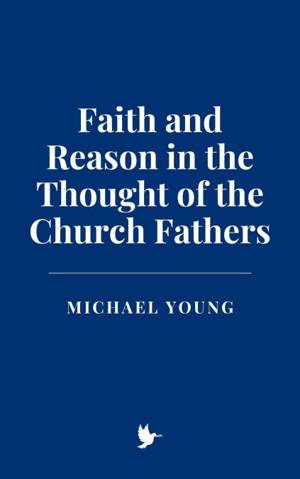
- Afhalen na 1 uur in een winkel met voorraad
- In januari gratis thuislevering in België
- Ruim aanbod met 7 miljoen producten
- Afhalen na 1 uur in een winkel met voorraad
- In januari gratis thuislevering in België
- Ruim aanbod met 7 miljoen producten
Omschrijving
This book explores the complex relationship between faith and reason in the thought of key Christian theologians from the early Church through the Middle Ages, with an emphasis on how they sought to reconcile philosophical reasoning with religious belief. Beginning with the writings of the early Church Fathers like Augustine of Hippo, the work explores how figures such as Anselm of Canterbury, Thomas Aquinas, and John of Damascus developed intellectual systems that integrated both faith and reason in the quest for theological and philosophical truth.
Each chapter focuses on a particular thinker, tracing their historical context, theological ideas, and philosophical contributions. Augustine, for example, emphasizes the primacy of faith as the foundation for understanding divine truth, while Anselm pushes for rational inquiry into God's existence through the ontological argument, arguing that reason can lead to belief. Aquinas extends this synthesis, employing Aristotelian thought to explore the compatibility between reason and faith, especially in areas like the existence of God, ethics, and the nature of salvation. The book also highlights figures like Maximus the Confessor, who reconciles divine and human wills in Christ, and John Cassian, whose teachings on monastic life emphasize the rational discipline of prayer and asceticism.
Specificaties
Betrokkenen
- Auteur(s):
- Uitgeverij:
Inhoud
- Taal:
- Engels
Eigenschappen
- Productcode (EAN):
- 9798230107132
- Verschijningsdatum:
- 10/01/2025
- Uitvoering:
- E-book
- Formaat:
- ePub

Alleen bij Standaard Boekhandel
Beoordelingen
We publiceren alleen reviews die voldoen aan de voorwaarden voor reviews. Bekijk onze voorwaarden voor reviews.









